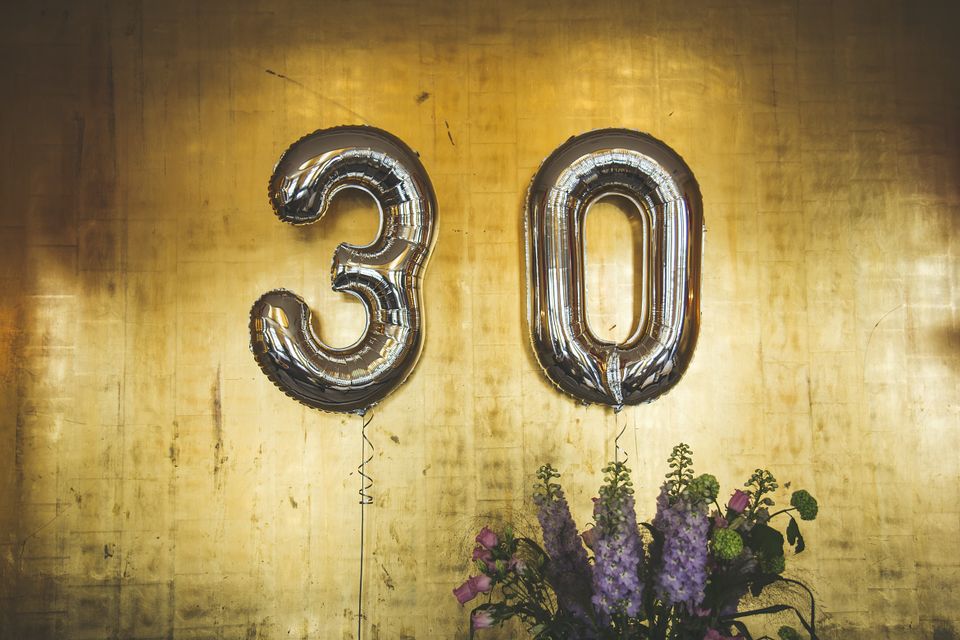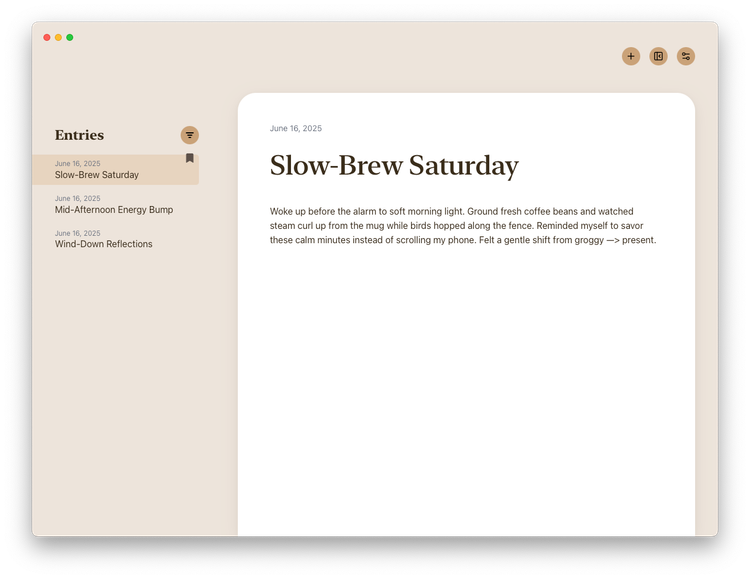Meditations at age 30

During my time alive, the world’s changed considerably, and faster than many prior 30-year segments of history. The internet, which mainstreamed around 1995, when I was three, is responsible for a lot of this acceleration. Newspapers foundered for the bulk of my teen years until institutions like the New York Times figured out how to become tech companies themselves. Modern journalism still seems to be finding its footing. We’ve seen many wars and conflicts. The planes crashed into the World Trade Center on September 11th, 2001, when I was nine. We went from welcoming each other at the airport gate to welcoming each other outside the security cordon. Smoking sections vanished from restaurants. We went into Iraq for a second time. The US deployed to and withdrew disastrously from Afghanistan. Cable TV got really popular and was subsequently displaced by streaming services. Video games became amazing, Hollywood-quality works of storytelling. We got iPhones. The US elected its first African-American president. Social media was great at first and then became pretty toxic. I went from being a Facebook power-user in 2008 to deleting my account in 2019. I moved from various online platforms to text messages to keep up with friends and family. Who would’ve thought that plain old email newsletters would make such a comeback, eh? Blockchains and cryptocurrencies came into existence and we’re just now starting to scratch the surface of their potential. Electric cars over the last 10 years not only became viable to drive cross-country, they got sexy. America sent the first astronauts to space on a SpaceEx Crew Dragon two years ago, after discontinuing the space shuttle flights when I was 19. And on and on.
I’ve compiled below a list of the people and things I’m grateful for, collected wisdom, and things I would have done differently over these past 30 years. I also made separate lists of my top books, movies and media, and places I’ve been, so far.
First, gratitude
I couldn’t be more thankful for:
- Meeting Fiona, my wife, at a funky art talk in a motorcycle garage in Salt Lake City. That one event was the starting point for some of the wildest adventures of my life yet. Fiona is the best companion I could’ve asked for. We have the same set of interests, the same hunger for awesome experiences, complementary life goals, and an identical sense of humor--crude and irreverent.
- A loving family who had the means to give me a great education and show me the world. As time has gone on, I’ve realized just how astonishingly lucky in the grand scheme of things I am to have been born to them in 1992, with all of the gifts of modern medicine and resources.
- Speaking of friends, Fiona and I have cultivated a core group that will last us to the end. They’re a key, daily part of our well-being.
- Having a sound mind, even if I’m a little crazy or paranoid sometimes.
- Not going off the deep-end with drugs or alcohol.
- Starting a goal tracking routine that I live by. I got obsessed with productivity right after college and read a lot of books about it. It may have gotten a little unhealthy at times, this fascination with “personal life operating systems,” but all of this trial and error and thinking boiled down to an effective set of habits that I stick to religiously. I set aspirations for who I want to be and what sort of lifestyle I want on a 5-10 year kind of horizon, I plan a year ahead more definitively, and then I set goals each week to get myself to those yearly goals. The key has been to build a bit of flexibility and forgiveness into the system. Life throws opportunities and curveballs at you left and right and you have to be able to adapt.
- Making it to 30. Small as it may be, just getting to this point feels lucky. It’s more time on the Earth than a lot of people have had throughout history. For example, there’s a whole thing about how tons of famous people die at the age of 27.
Key learnings over 30 years
I want to caveat here that I can’t take credit for most of these. You’ll find a lot of this stuff embedded in books both ancient and modern. I also don’t mean to say that these are all true all the time for all people, but they’re tenets that I’ve generally seen hold true.
- You have limited energy. That is, the force that makes you act and push toward goals. Prioritization is essential if you want to achieve big, difficult things. Focus on the minimum number of things you can and de-prioritize the rest.
- Figure out what gives you energy and do more of that. For me, it’s making stuff (blogs, podcasts, videos, food, stuff for my job), achieving big, difficult things, and being outside.
- Build momentum toward a desired persona (“I am a writer,” “I am a runner.”) using routines and habits. If you simply do certain things enough, you become the persona you want to adopt. Run a few miles every day for a month and you will probably feel that you are now a runner. Stop doing the habit regularly, and you cease to be that persona. Just a note that this idea comes in large part from my reading of Atomic Habits, by James Clear, which I would recommend reading if you’re interested in Clear’s broader argument about the incredible power of repetition for good and ill.
- Value experiences over things. It’s better, and much more achievable, to build your life around a desired lifestyle than it is to aim your goals at acquiring specific and expensive possessions. E.g. wanting a yacht (hard) vs. wanting a life where you go boating frequently (achievable). Also, if you aim for a lifestyle of awesome experiences, you’re more likely to be happy than acquiring an object once, after which your enjoyment of it diminishes rapidly.
- Conflict most often comes down to poor communication and misunderstanding, rather than malevolence. Try as hard as possible to disagree with people in good faith and you’ll preserve more relationships and even make them better.
- There are few critics worth responding to, especially in the age of the internet. Ignore most people if they have something mean to say. Engaging with mean people transfers energy from you to them and makes you look and feel small.
- Rule of thumb: You’re the average of the five people you spend the most time with. You’ll probably level up if you surround yourself with excellence.
- Hang out with artists, iconoclasts and hacker types who want to change the status quo. They tend to rub off in a positive way and show you a vision for how much more awesome your world can be.
- There’s a difference, though, between being iconoclastic and being a cynic. Be vigilant and ruthlessly cut out cynical people from your regular rotation. If you can’t cut them out entirely, do whatever you can to limit your exposure to protect your own well-being.
- There are few jobs (doctors, firefighters, EMTs, soldiers, etc. being obvious exceptions) worth being shackled to a geographic location for, particularly if you’re young with no responsibilities or much to lose. Aim for remote work to give yourself physical and mental flexibility. Go see the world. Long commutes to a generic office building suck your soul over time.
- People are much more willing to accept your boundaries and preferences if you clearly communicate them. Unless they’re sociopathic, those in your orbit generally want you to be happy because they want stability. But it’s dangerous to assume that other people can read your mind. Ask for what you want. In the job world, that could be the pay you want, boundaries around exercise, fewer meetings, or time for family. In the world of personal relationships: Alone time for creativity, declaring what annoys you, lifestyle goals with a partner (“let’s be digital nomads for a couple of years”), etc.
- Be authentic, but adaptable. You can’t talk to your coworkers like you would friends at a bar after six cocktails and expect good results. But in the opposite direction, refrain from virtue signaling. People are pretty good at detecting bullshit and posturing. Those things backfire.
- Condescension is the number one way to set people against you.
- Allies and coalitions are key to achieving big, difficult things. Learn how to point networks of people at the same goal and mediate between different views by trying it repeatedly.
- In finance, it’s generally prudent over the long-term to place your assets in diversified index funds to maximize returns and outperform inflation. Companies like Wealthfront help you do this cheaply. Investing in individual stocks and cryptocurrencies is gambling. Keeping some fiat cash on hand is good, but remember that it’s always evaporating value like dry ice.
- Formal degrees are meaningless without associated independent learning and initiative. A masters may get your foot in the door with an employer, but your ability to rapidly cultivate useful skills outside of a college class is something that actually sets you apart in the free market. Like a lot of other people in Silicon Valley, I now hold quite a bit of contempt for the College-Industrial Complex and the culture of job descriptions that stipulate “a four-year bachelor degree in ___ or relevant field” when what really matters is what you’ve actually built before and your drive to continue. I also hold a lot of contempt for the fetishization of Ivy League universities and how our culture still seems to teach kids they need to go into $250k of debt for an English degree. You don’t need credibility stamps, you need to feed your curiosity, take action, and make things of value.
Do-overs
We’re shaped by our experiences, especially our mistakes, so wishing for a do-over is paradoxical. You wouldn’t be the same person if you had your way. You might have a completely different brain, or you might even be dead having selected other paths. There’s the butterfly effect to consider. One small change would cascade and you’d get to a present with crazy different outcomes. Since you can’t go back, it’s kind of pointless, even counterproductive, to ruminate on stuff you wish happened differently. All that said, it’s good to acknowledge these things in case they help you or others avoid mistakes in the future.
Do-overs:
- I probably should have signed up for the military right after college and served for a few years. Given the choice, it would’ve been the Air Force. Military service runs deep in my family, and I still feel a gap in my soul for not having participated. I haven’t ruled it out entirely at this point; I like to think that would volunteer in a heartbeat given a dire enough political situation. But short of that, life has taken me elsewhere.
- I would have studied computers more exclusively in my formal and informal education up to this point, since software is eating the world. I mucked about with some other pursuits in college.
- I wish I’d developed my thinking around routines and habits sooner.
- I’m also just generally plagued by this sense of having never given my all in…well, any endeavor in my whole life. I feel like I can’t point to any one achievement or success after which I had no more to give. It's something to think about in years ahead.
I recognize that is a somber note to end on, but any mistakes or omissions on my part are far outweighed by the all that has gone well. Like I said in the section on gratitude: I'm here, I'm healthy, and I'm surrounded by great folks. Cheers to 30 years!
Post-script from Sean Astin (Samwise Gamgee in The Lord of the Rings)
Many thanks to my sister, Katie, for reaching out to him!





